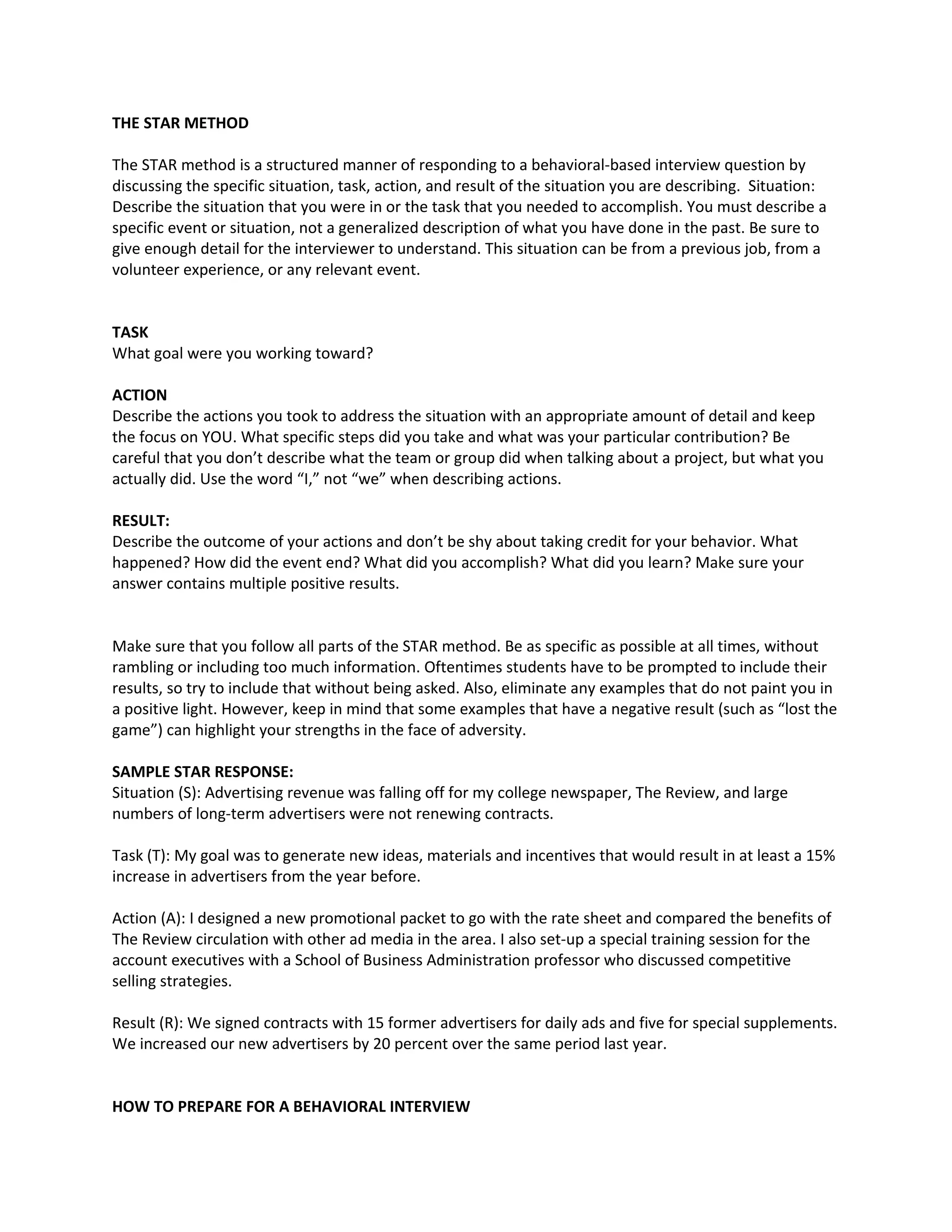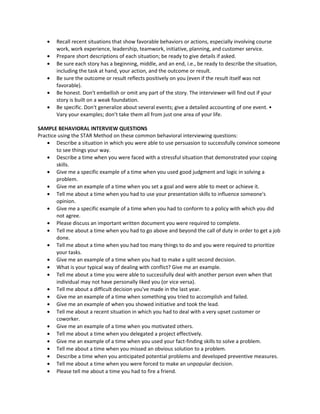The document provides an overview of the STAR method for answering behavioral interview questions. STAR stands for Situation, Task, Action, Result. It explains each component and provides a sample response using the STAR format to describe a situation where advertising revenue was increasing for a college newspaper. It also lists example behavioral interview questions and advises preparing stories that follow the STAR structure to demonstrate favorable behaviors and skills.


